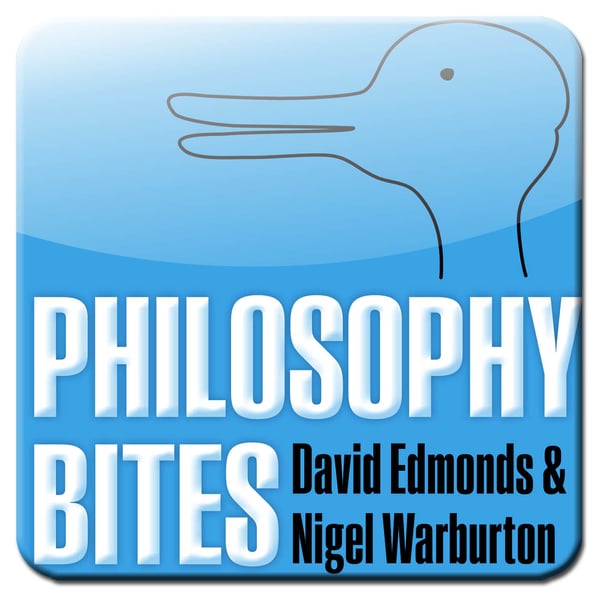Steven Nadler on Spinoza on Free Speech
Philosophy Bites
Nigel Warburton
4.6 • 2K Ratings
🗓️ 18 May 2021
⏱️ 18 minutes
🧾️ Download transcript
Summary
Spinoza was famously heretical in his views. No surprise then that he defended free expression. Here Steven Nadler discusses Spinoza's views on this topic with Nigel Warburton.
Transcript
Click on a timestamp to play from that location
| 0:00.0 | This is Philosophy Bites with me Nigel Wolberton and me David Edmunds. |
| 0:07.7 | If you enjoy Philosophy Bites, please support us. We're currently unfunded and all donations |
| 0:12.5 | would be gratefully received. For details go to www.philosophybites.com. |
| 0:18.8 | It's perhaps not surprising that the 17th century Dutch philosopher Barocottis Benosa would |
| 0:23.6 | argue in support of free speech. Of Portuguese Jewish origin, his controversial ideas on God |
| 0:29.9 | and ethics got him kicked out of his community. But quite how radical was his position on |
| 0:35.8 | free speech. He is one of the leading scholars on Spinoza, Stephen Nadler. |
| 0:40.3 | Stephen Nadler, welcome to Philosophy Bites. |
| 0:42.8 | I was good to be back, thanks for having me again. |
| 0:45.1 | We're going to be talking about Spinoza and freedom of speech and freedom of expression. |
| 0:49.9 | Spinoza was quite remarkable philosopher. What did you have to say about free speech? |
| 0:56.3 | Well, he was way ahead of his time and the theological political treatise, which was published |
| 1:01.2 | in 1670, to great alarm, cause a great scandal for its various views on miracles, the Bible |
| 1:07.3 | and religion. But he also devoted several chapters to mostly political matters. And chapter |
| 1:14.1 | 20 of the treatise has this remarkable statement where he says that in a free commonwealth, |
| 1:20.7 | every man may think as he pleases and say what he thinks. Which on the face of it, it |
| 1:27.1 | looks like he believes in an absolute freedom of speech and absolute freedom of expression, |
| 1:33.1 | which would include freedom of the press, freedom of literature and so on. Everyone should |
| 1:37.6 | be free to think as he pleases and say what he thinks, whether in voice or in writing. |
| 1:41.9 | So it looks like for Spinoza, at least on the face of it, there to be no restrictions |
| 1:46.7 | on what people can say and write and print. That's quite unusual actually when people |
| 1:51.6 | talk about freedom of expression because most people want to set some limits. The question |
... |
Please login to see the full transcript.
Disclaimer: The podcast and artwork embedded on this page are from Nigel Warburton, and are the property of its owner and not affiliated with or endorsed by Tapesearch.
Generated transcripts are the property of Nigel Warburton and are distributed freely under the Fair Use doctrine. Transcripts generated by Tapesearch are not guaranteed to be accurate.
Copyright © Tapesearch 2025.

